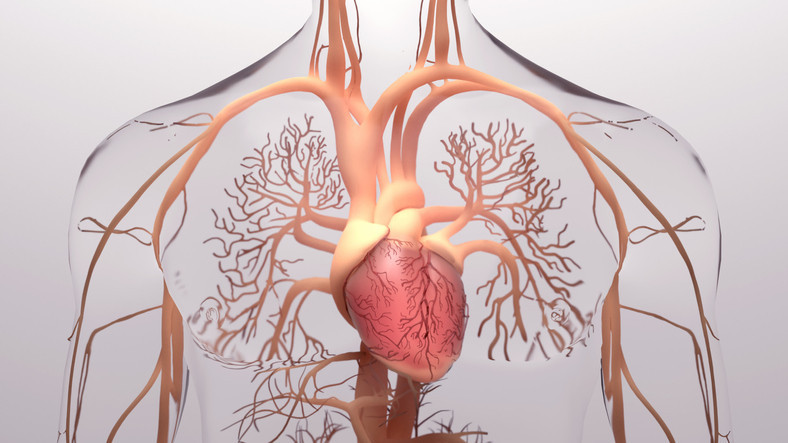
Daily cup of coffee may prevent afib recurrence

Gene-editing therapy lowers harmful blood fats in early study

What is EMDR therapy, and who can it help?

GLP-1 drugs versus bariatric surgery for treating obesity

Trying to lose weight? Be careful not to lose muscle

Two dumbbells, three exercises, and 10 minutes

Easing the emotional burden of IBS

Modify your push-ups to meet your fitness level

What is long QT syndrome?

Stroke survivors may benefit from very low LDL levels
Harvard Health Blog
Read posts from experts at Harvard Health Publishing covering a variety of health topics and perspectives on medical news.
Articles
Have a gas stove? How to reduce pollution that may harm health
Cooking with gas stoves releases nitrogen dioxide and gas appliances introduce other toxic chemicals into homes, but people can take steps to protect their household and help improve outdoor air quality, too.
Proton-pump inhibitors: Should I still be taking this medication?
Proton-pump inhibitors are a commonly prescribed anti-acid medication, but new guidelines from the American Gastroenterological Association recommend that they should be taken at the lowest dose and shortest duration for the condition being treated.
How good is your cardiometabolic health — and what is that, anyway?
An analysis shows less than 7% of adults in the US meet the criteria for optimal cardiometabolic health. Taking small steps to help control and improve key risk factors can reduce the odds of a heart attack or stroke.
Poison ivy: Scratchin' like a hound?
Misconceptions about poison ivy are common — from when you can get it to how you might get it, and the best ways to treat it. Knowing the facts can help you avoid it, or treat it properly if you are exposed to it.
Apps to accelerometers: Can technology improve mental health in older adults?
The adoption of technology has grown rapidly among older adults, and with it have come potential benefits to mental health, daily functioning, and quality of life. Those who want to help an older person in their life might suggest one of the many options available.
Opioid addiction and overdoses are increasingly harming Black communities
The ongoing opioid epidemic in the US has been perceived as an issue that mostly affects white people in rural areas, but a recently published report from the CDC shows that the epidemic is now disproportionately affecting Black people.
Hand pain from arthritis? This may help
The joint connecting the thumb and wrist is crucial in everyday activities like opening jars or grasping objects, but if osteoarthritis develops, treatment options are limited and don't always work well. A new study has demonstrated the effectiveness of occupational therapy for arthritis in this joint of the hand.
Polio: What parents need to know now
Recent news reports about cases of polio have some parents concerned about the illness. The vaccine is safe and remarkably effective, and widespread vaccination builds herd immunity.
Ketamine for treatment-resistant depression: When and where is it safe?
Ketamine has been used for decades as an anesthetic, and in 2019 an inhaled version of it was approved by the FDA for treatment-resistant depression. But it is generally prescribed only when other treatments have not been effective.
Have lupus? What to know about birth control
An estimated 7% of Americans have an autoimmune disorder, and these tend to disproportionately affect women. Expert guidelines can help with questions about the best birth control options for people with lupus and other autoimmune diseases.
Travel tummy troubles: Here's how to prevent or soothe them
Digestive troubles are no one's idea of fun, but having them occur while traveling or vacationing is even worse. Here's a closer look at three common digestive upsets, how to prevent them, and what to do if you have one.
Easy, delicious summer veggie meals will help stretch your food budget
Summertime offers a great variety of fresh vegetables. Making vegetables the focus of a meal has many health benefits, and anyone can take advantage of this by preparing them in simple yet delicious ways.
Tracking viruses: The best clues may be in the sewer
It's hard to accurately predict when new viral outbreaks will appear or old viruses will reappear and how to figure this out quickly enough to respond quickly. Wastewater testing, a tool that can help predict upticks in COVID cases, has also captured evidence of infectious diseases like polio, allowing preventive measures to be taken.
Promising therapy if PSA rises after prostate cancer surgery
After a man has had a radical prostatectomy, sometimes the level of the antigen PSA rises again later, meaning cancer may have returned. A study found that the normal therapy given when this happens is more effective when combined with other forms of treatment.
Should you try intermittent fasting for weight loss?
Intermittent fasting is limiting the window of time each day when a person eats. It has become popular as a weight loss tool, so people want to know if it's effective and whether it can work for them, and a recent study attempted to provide some answers.
Why are you taking a multivitamin?
One in three Americans takes a daily multivitamin even though research shows this doesn't provide any meaningful health benefits for most people. And because of the way supplements are regulated, some supplements make claims that have no evidence behind them.
Could eating fish increase your risk of cancer?
A new study found a higher risk of melanoma among people who ate the most fish, but limitations of this research mean it's premature to draw any conclusions about a relationship between eating fish and melanoma risk.
Can music improve our health and quality of life?
Humans' relationship with music is complex and individual, and there are times when music can have a clear and immediate impact on our well-being. Music therapy uses music as a therapeutic tool to address certain health care goals.
Millions rely on wheelchairs for mobility, but repair delays are hurting users
Wheelchairs allow millions of Americans with mobility disability to participate in daily activities and engage in community life. But when a wheelchair needs to be repaired, delays can mean a person is unable to leave their home or manage daily tasks for days.
Waist trainers: What happens when you uncinch?
Splashy advertisements suggest that compression devices called waist trainers can help you sculpt inches off your waistline. The claims far outweigh the evidence, but exercises that strengthen core muscles can also help shape your waist.
Preventing C. diff in and out of the hospital
The bacteria C. diff is responsible for half a million infections each year in the US. Many infections happen when people are hospitalized, but a recent report indicated that people can be infected without ever being hospitalized.
Managing weight gain from psychiatric medications
A side effect of many psychiatric medications is weight gain. Antidepressants, antipsychotics, anti-anxiety and sleep medications, and mood stabilizers can all affect metabolism in ways that lead to increased weight, so it's important to know what you can do to lessen this unwanted effect.
Inflammatory bowel disease and family planning: What you need to know
Inflammatory bowel disease is commonly diagnosed at a point in life when many people are planning families. People who have been diagnosed with IBD are likely to have questions and concerns regarding fertility, conception, pregnancy, delivery, and breastfeeding.
Can a vegan diet treat rheumatoid arthritis?
A recent study suggested a vegan diet is an effective treatment for rheumatoid arthritis, and its lead author also said that people should try changing their eating patterns before turning to medication. But there is no evidence that changes in diet can prevent joint damage that occurs in rheumatoid arthritis.

Daily cup of coffee may prevent afib recurrence

Gene-editing therapy lowers harmful blood fats in early study

What is EMDR therapy, and who can it help?

GLP-1 drugs versus bariatric surgery for treating obesity

Trying to lose weight? Be careful not to lose muscle

Two dumbbells, three exercises, and 10 minutes

Easing the emotional burden of IBS

Modify your push-ups to meet your fitness level

What is long QT syndrome?

Stroke survivors may benefit from very low LDL levels
Free Healthbeat Signup
Get the latest in health news delivered to your inbox!
Sign Up

























